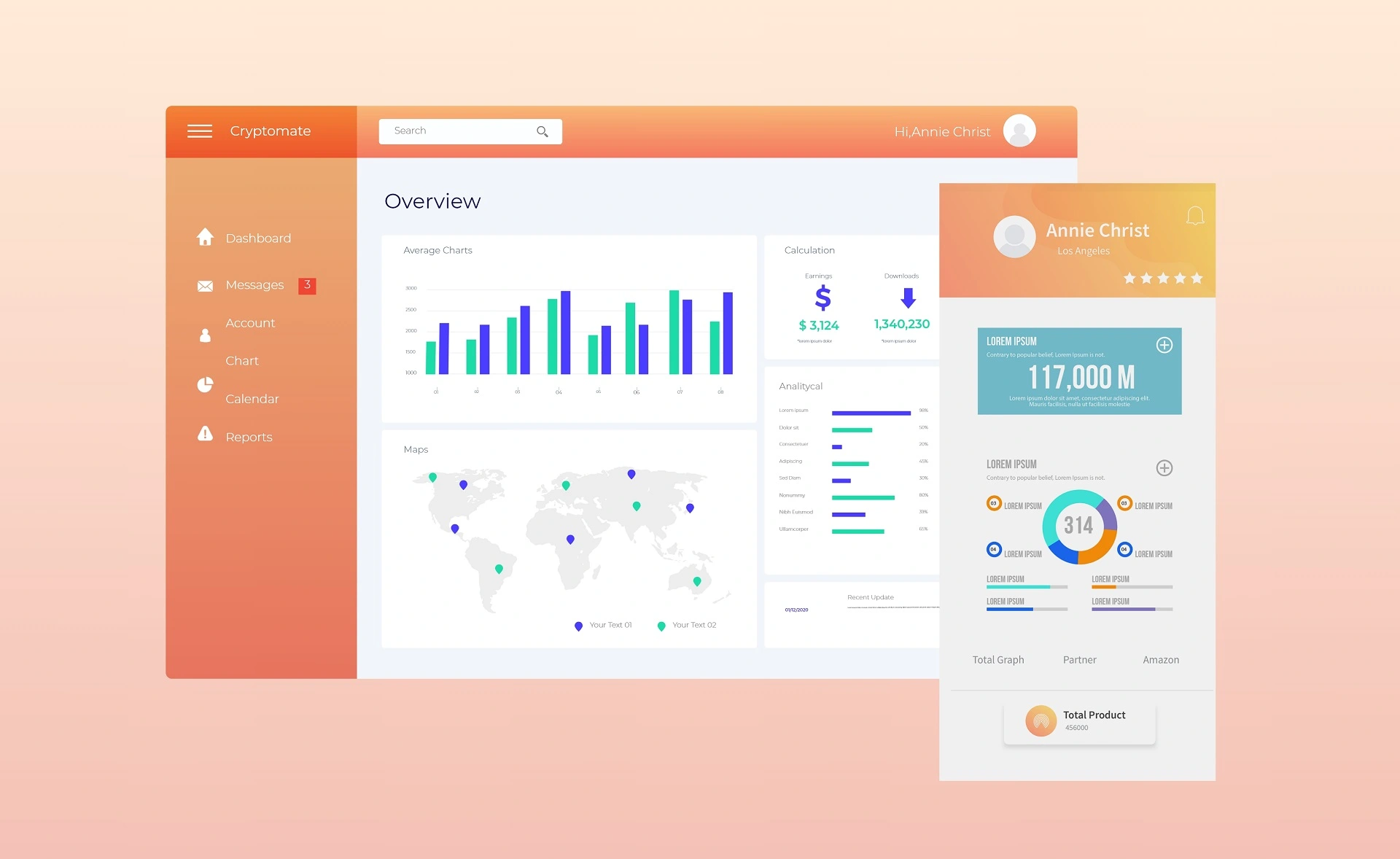- April 26, 2022 6:00 am
- by Aruthra
- April 26, 2022 6:00 am
- by Aruthra

Businesses around the world view the digital space as the new real estate when it comes to advertising. Moreover, websites and applications are being used as key retail/engagement points with their customers. It is obvious that applications are more important nowadays when mobile phones are viewed more on average than computers or even television sets.
Although all apps look very similar, they are divided into two very distinct categories: mobile apps and web apps. From the way they are developed to how they interact on a user’s device, both are extremely different. This blog aims to discuss the difference between mobile and web apps and help you decide which type best suits your needs.
For most enterprises, mobile applications are the most direct approach to gaining a significant digital presence. These are downloaded from the App Store (for iOS devices) or Play Store (for Android devices). Having been approved by the stores, they are highly safe and secure. One drawback for developers is the difficulty of getting approval. Moreover, users have to manually install any and all updates that the apps will need from time to time.
Native apps are the most common kind of mobile app. They are usually developed from scratch for some particular operating system or platform, such as Apple’s iOS and Google’s Android. Apple offers Xcode IDE for development in Swift and Objective-C languages, while Android offers Android Studio for development in Java and Kotlin languages.
Apple and Google also provide their own development tools, interface elements, and software development kits (SDKs) which developers can use to make native mobile apps. Building native apps are the most expensive option out of all those that will be discussed here. So, it is mainly suited for companies that have enough money to invest in building an app for each separate platform they wish to have an app for.
Flutter, React, Native and Ionic are among the most popular hybrid mobile app development platforms out there. They allow developers to have a single codebase that is compatible with all available operating systems. Hence, this is a more attractive option for startups and small & medium enterprises as they can save on investments by building a single version of their desired app.
Additional reference Know in detail about Cross and Native apps
Web applications look very similar to mobile apps, but in fact, they are just websites designed to look so. They’re also made to be more responsively fluid and are dynamic when it comes to updates. Therefore, they do not require any effort from the user to get updated. These applications are more popular as they can be directly accessed from any browser on any platform.
Mobile phone users usually prefer only a handful of apps for installation on their device (such as social media apps, music apps and games). Web apps are not available for download on any app store, and hence are easily accessible and attractive. (Web apps include online forms, spreadsheets, Gmail, file converters, etc.)
However, this may mean that they are less safe and secure than mobile apps as they did not have to go through the tedious task of gaining approval from a store. Mobile apps have access to device features such as camera, microphone, GPS, etc. while web applications are limited in terms of such access. Another drawback of web apps is that an Internet connection is a must in order to use them, while mobile apps can mostly be used offline.
Need assistance with maintenance & development of web applications? Hire expert Web app developers from us.
Progressive web apps are considered to be the best of both worlds - mobile apps and web apps. When it comes to functionality, PWAs fall somewhere in between the two, as they try to provide mobile application properties over a web browser. PWAs aim to have a look and feel similar to native apps without requiring users to download or install any software.
While web apps use up a lot of resources when it comes to network bandwidth, PWAs can be used offline, thanks to the application cache feature of modern browsers (though use is limited when compared to the offline functionality of native apps).
Like web apps, PWAs are cheaper to develop and they self-update in real-time. However, as they’re written in high-level code, they consume more battery power than native apps.
Read about the pros & cons of Native, Hybrid and Web Apps.
Though building an app seems like the obvious next step for attracting and retaining more customers, each business must think very carefully about what kind of app would best meet their needs (in terms of their budgets, customer habits, goals, and requirements). Depending on such criteria, different kinds of apps offer different advantages when it comes to both getting and retaining customers.
Guaranteed Response within One Business Day!
What is Infrastructure as Code (IaC)?

Front-End Performance in 2026: What Core Web Vitals Actually Mean for Your Site

What is FinOps?

Micro-Frontends: Breaking Down Monolithic React Applications
.png)
Zero-Trust Security Models for SaaS: What You Need to Know